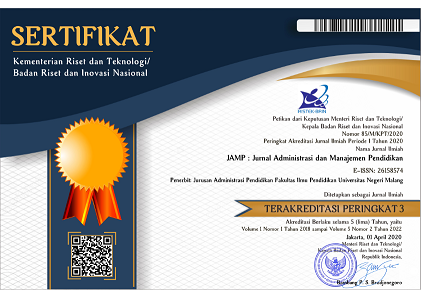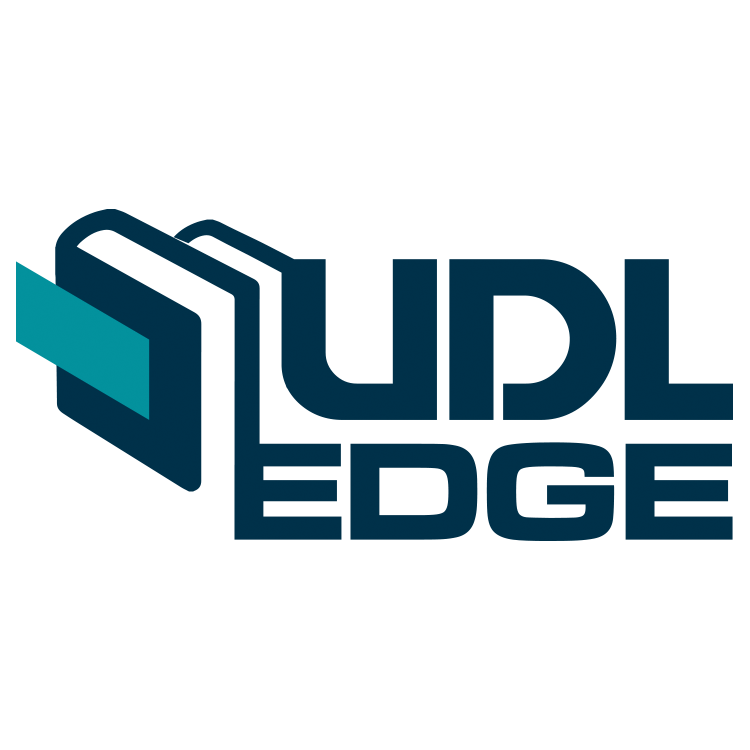EVALUASI KUALITAS JASA SEKOLAH DASAR DENGAN MODEL SERVQUAL UNTUK MENANGANI PENURUNAN JUMLAH PESERTA DIDIK
Abstract
Abstract: This study aims to evaluate the service quality of Kanaan Christian Elementary School in Banjarmasin. Type of research is evaluative research with descriptive qualitative methods using SERVQUAL model which measures the gap between consumer perceptions and expectations based on dimensions of reliability, responsiveness, assurance, empathy, and tangibility. Data were collected by interview, also using a SERVQUAL and school’s input, process and output aspect questionnaire. The results showed that the perception of service from customers is quite good and able to meet the minimum expectations although it has not reached the desired expectations. The order of SERVQUAL's five dimensions from most satisfying to least satisfying is: tangibility, reliability, empathy, assurance, and responsiveness. It can be concluded that the dimension of responsiveness is in the most unsatisfactory position because currently the management of Kanaan Christian Elementary School in Banjarmasin seems like there is no one taking a leader role. Things that can be considered by Kanaan Christian Elementary School are to keep and prove the promise that has been delivered so that customers are not easily disappointed and also involve parents in a word of mouth marketing strategy due to the character of target customers are critical, like to gather and chat together.
Keywords: educational service; school quality; SERVQUAL
Abstrak: Penelitian ini bertujuan mengevaluasi kualitas jasa di SD Kristen Kanaan Banjarmasin. Jenis penelitian ini adalah penelitian evaluatif dengan metode kualitatif deskriptif menggunakan model SERVQUAL yang mengukur kesenjangan antara persepsi dan ekspektasi konsumen berdasarkan dimensi reliabilitas, daya tanggap, jaminan, empati, dan bukti fisik. Teknik pengumpulan data dengan wawancara, dibantu kuesioner berinstrumen SERVQUAL dan aspek input, proses dan output sekolah. Hasil menunjukkan bahwa persepsi layanan jasa dari pelanggan cukup baik dan cukup memenuhi harapan minimum walaupun belum mencapai harapan yang diinginkan. Urutan lima dimensi SERVQUAL dari yang paling memuaskan hingga yang paling tidak memuaskan adalah: bukti fisik, keandalan, empati, jaminan, dan daya tanggap. Disimpulkan dimensi daya tanggap berada di posisi paling tidak memuaskan adalah karena saat ini manajemen SD Kristen Kanaan Banjarmasin seolah seperti tidak ada yang mengambil peran pemimpin. Hal yang dapat menjadi pertimbangan SD Kristen Kanaan adalah agar dapat menjaga dan membuktikan janji yang telah disampaikan agar pelanggan tidak mudah kecewa dan dapat melibatkan orang tua murid dalam strategi pemasaran mulut ke mulut mengingat karakter target pelanggan yang kritis, suka berkumpul dan mengobrol.
Kata kunci: jasa pendidikan; kualitas sekolah; SERVQUAL
Full Text:
PDFReferences
BPS. (2019). Ekonomi Indonesia 2018 Tumbuh 5,17 Persen. Diakses dari https://www.bps.go.id/pressrelease/2019/02/06/1619/ekonomi-indonesia-2018-tumbuh-5-17-persen.html, tanggal 1 Agustus 2019, pk. 03:40
Fatona, S. (2010). “Kualitas Jasa yang Mempengaruhi Loyalitas dan Relevansinya Terhadap Kepuasan”, Jurnal Dinamika Manajemen, Vol. 1, No.1
Hoffman, K. D., J. E. G. Bateson. (2011). Services Marketing: Concepts, Strategies, & Cases, Fourth Edition. USA: South-Western
Hwang, Y.S., Y. K. Choi. (2019). “Higher Education Service Quality and Student Satisfaction, Institutional Image, and Behavioral Intention”. Social Behavior and Personality An International Journal, Vol. 47, Issue 2
Kotler, P., G. Armstrong. (2016). Principles of Marketing. New Jersey: PEARSON
Margareta, R. T. E. (2018). “Strategi Pemasaran Sekolah Dalam Peningkatan Minat Peserta Didik Berdasarkan Delta Model”. Magister Manajemen Pendidikan UKSW Salatiga.
Moleong, L. J. (2012). Metodologi Penelitian Kualitatif. Bandung: Remadja Rosdakarya.
Nadiri, H., Kandampully, J., & Hussain, K. (2009). “Zone of tolerance for banks: a diagnostic model of service quality”. The Service Industries Journal, 29(11)
Nurkolis. (2003). Manajemen Berbasis Sekolah. Jakarta: Grasindo.
Oplatka, I., & Hemsley-Brown, J. (2012). “Research on School Marketing: Current Issues Andfuture Directions – An Updated Version”. The management and leadership of educational marketing. Bingley, UK: Emerald Group Publishing.
Parasuraman, A. (2004). “Assessing and improving service performance for maximum impact: Insights from a two-decade-long research journey”. Performance Measurement and Metrics, 5(2), 45–52.
Parasuraman, A., V. Zeithaml, A. Malhotra. (2005). “E-S-Qual: A Multiple-Item Scale for Assessing Electronic Service Quality”. Journal of Service Research. 7.
Sudjana, N., Ibrahim. (2009). Penelitian dan Penilaian Pendidikan. Bandung: Sinar Baru Algesindo
Zeithaml, V. A., A. Parasuraman, dan L.L. Berry. (1990) Delivering Quality Service. New York: The Free Press
DOI: http://dx.doi.org/10.17977/um027v4i12021p51
Refbacks
- There are currently no refbacks.
Copyright (c) 2021 Gloria Jonathan

This work is licensed under a Creative Commons Attribution-ShareAlike 4.0 International License.


This work is licensed under a Creative Commons Attribution-NonCommercial-ShareAlike 4.0 International License.









12.png)